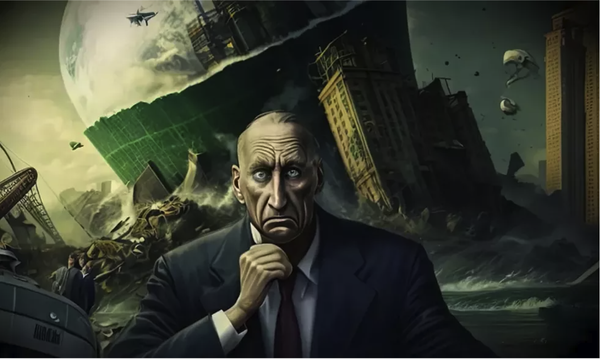The Invisible Doctrine Documentary to Screen at BIFF on May 31 in Great Barrington
The doc is a searing exposé of how a once-fringe economic ideology came to dominate the world.

The doc is a searing exposé of how a once-fringe economic ideology came to dominate the world.

The most dangerous ideology is the one you don’t even realize you believe in. That’s the animating premise behind The Invisible Doctrine: The Secret History of Neoliberalism, a new documentary that laces up its boots, kicks down the Overton window, and drags a half-century of market-worshipping orthodoxy into the light. It screens May 31 at 4:30pm at the Triplex in Great Barrington, part of the slate of films at the Berkshire International Film Festival.
Directed by Peter Hutchison (Requiem for the American Dream) and Lucas Sabean (The Man Card), and narrated by the acerbic and laser-eyed British journalist George Monbiot, The Invisible Doctrine is part detective story, part exorcism. It traces how a fringe economic theory hatched in 1930s exile—by Austrian thinkers Friedrich Hayek and Ludwig von Mises—went on to infiltrate university departments, government cabinets, and the global imagination, rebranding greed as freedom and deregulation as salvation.
Monbiot, who once described neoliberalism as “a zombie doctrine that devours everything in its path,” functions here as both narrator and bloodhound. With scenes scored to Peter Gabriel (yes, that Peter Gabriel), Monbiot lays out how this ideology, which elevates competition above all else, quietly colonized Western democracy. It’s not a conspiracy—no lizard people here—but something more insidious: a worldview that has become so pervasive it’s mistaken for common sense.
The film plays like an annotated roadmap through the rubble of our current moment: a democracy hobbled by corporate power, a climate in freefall, public services gutted, and an atomized citizenry rebranded as “consumers.” But it’s not just a dirge. The Invisible Doctrine is also a call to remember alternatives that once existed—and still do, just buried under a mountain of Milton Friedman think-tank PDFs and World Bank white papers.
“The only thing ‘liberal’ about neoliberalism is its unrelenting desire to liberate corporations from rules,” Sabean says. That liberation, of course, comes at a cost: unions broken, wages stagnant, ecosystems strip-mined, social cohesion turned to dust. The film doesn’t scream. It doesn't need to. Its power lies in how calmly it dismantles the myths we’ve been sold: that there is no alternative, that the market is neutral, that individual success is purely a matter of grit.
To those unfamiliar with Monbiot, think David Attenborough meets Naomi Klein—if Attenborough were fed up and furious. He’s been warning us for years that neoliberalism isn’t just an economic system but a moral narrative that reshapes how we view one another. As Monbiot writes in the book the film adapts, “Neoliberalism tells us that we owe nothing to each other, and everything to the market.”
If you’ve ever wondered why the richest country in the world can’t guarantee clean water, or why every crisis is somehow an opportunity—for someone else—The Invisible Doctrine is your Rosetta Stone.
The Invisible Doctrine: The Secret History of Neoliberalism screens on Saturday, May 31 at 4:30pm at The Triplex in Great Barrington. Tickets are available.